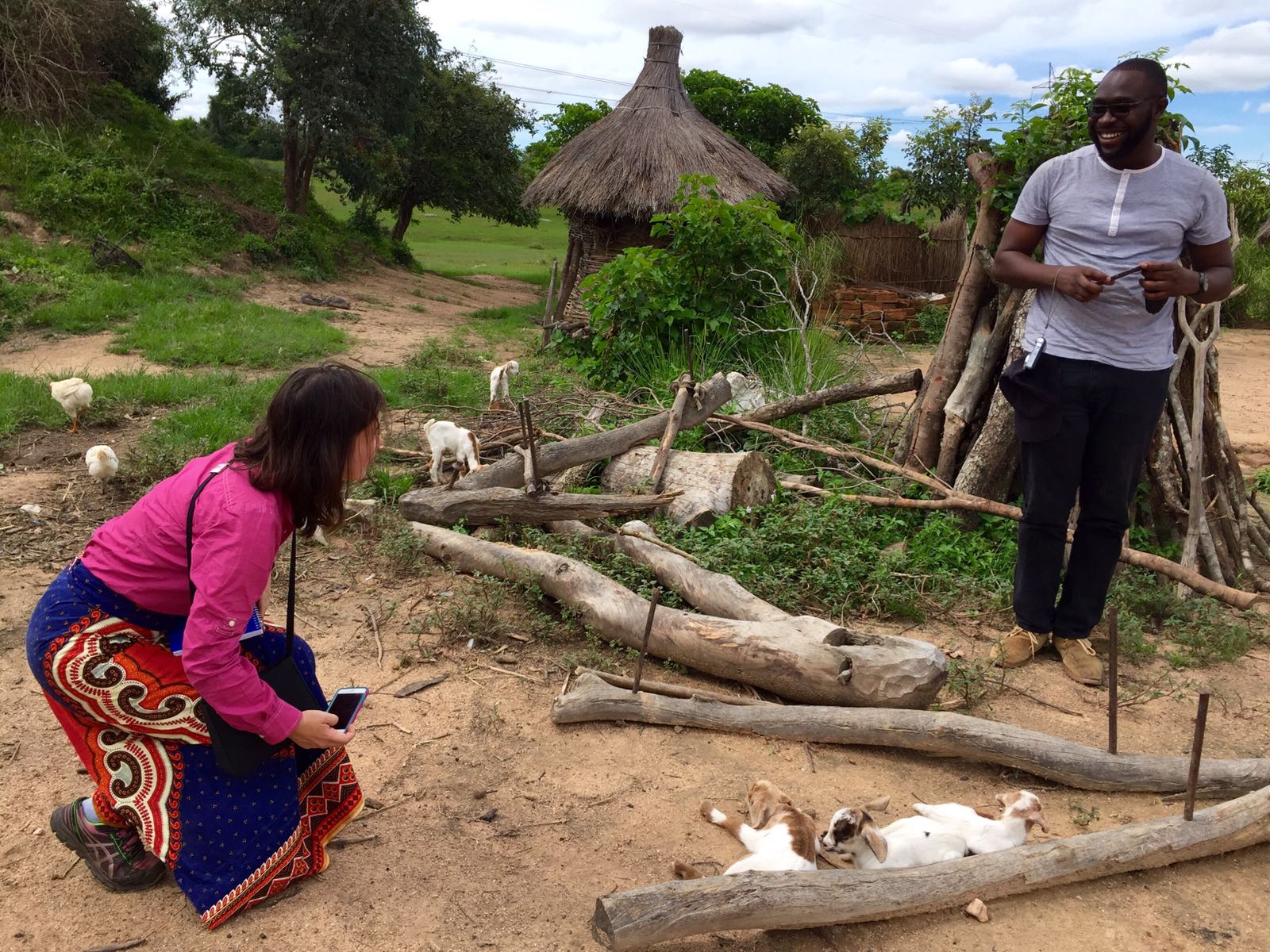Every so often my peers from college reach out to me to find out how to join the international development sector. Or new development workers reach out wanting to know what to expect. Or recent grads reach out for general work/life tips “because I am entering [tech/finance] but don’t want to lose my soul”.
I think, cautiously, wanting to do something in the social sector is a good thing, and I love my job, but I joined with a naïve saviour complex. So after one of these career advice conversations, I came up with these (slightly cynical) pieces of advice for American college grads looking to do social good. Disclaimer, I’ve been out of college for only two years and am not wise, but those two years might be enough to be of use.
tl;dr: You’re probably not going to personally have social impact, so treat people well and surround yourself with people who make you better and also care about the world.
1. Surround yourself with people who make you better.
“You’re kind,” a friend told me a couple weeks ago. I don’t get this often. I am not, as my mother would attest to, a naturally kind person. But I realised that around this friend I am someone who cares about people. I become kind, and maybe am kind, even if me-qua-me is not. I around some of my family members and friends am someone who cares deeply about seeing and valuing people as people and not because of their intelligence or class background, even if me-qua-me does not. I around some of my colleagues am more attuned to inequality, more likely to strive to make things in my organization better and follow through with it, even if me-qua-me does not.
I around some of the people I am closest with, am a person who is more likely to continue to care and think critically about how to do some good in the world.
People like this can be found anywhere. It might be take more searching in some jobs, but it’s possible. I think it’s what everything else rests on.
2. Focus not on changing the world, but on building skills.
Face it, you, as a 22-year-old American college graduate, aren’t going to change the world. You can go into careers that are have less negative impact than others – weapons manufacturing, probably not a good choice – but beyond that, I can’t say I’m impacting the world more positively at my international nonprofit than someone who is working as a teacher, or at a tech startup, or as a full-time parent, or in local politics. All these things have the potential, but not the guarantee, for positive social impact.
The most obnoxious people in the development sector are convinced they are changing the world and are better than others for it. I was like that at 22 and it was bad.
What this job has given me that is good, is a) (as above) a community that cares about making the world better and thinking critically about how to do it; and b) highly transferrable skills (project and team management, critical thinking, communication, even some coding) that will hopefully help me do some social good in the future. This is something you could also find in any number of jobs, including the private sector.
3. Focus not on changing the world, but on respecting and caring for the people around you.
An irksome development sector habit is people patting themselves on the back for doing some utilitarian good, and then not treating people around them with respect. This ranges from the merely obnoxious to the very serious, including: trying to get the “best deal” from house help instead of paying them a living wage, insulting programme beneficiaries’ way of life behind their backs, speaking condescendingly to colleagues, and treating waiters as subhuman. I’ve been guilty of some of these things.
What I’ve learned is – I want to have social impact, but above all, I would like to be kind. And kindness, treating everyone you encounter as a human who is worthy of respect, is easier to guarantee positive impact from than massive social programmes.
Maybe your perfectly-executed programme will change the lives of thousands of farmers, but maybe it will be neutralised by a bad harvest, or a market failure, or a change in funding, or something else beyond your control. But the way you speak to and treat your employee will surely affect her as a person, either negatively or positively.
4. (Development-specific) Treat the place you are working as a place you might make your home.
One unfortunate development-worker paradigm involves moving around every two years with the expectation that everywhere things will be transient and there’s no need to learn anything about the country. I had this attitude upon moving to Zambia and made all sorts of flimsy excuses about why I wasn’t trying harder to learn the local language or spend time in the non-expat community.
This is weird and paternalistic. Would you move to France and try to influence the French political sphere without learning French or making French friends or learning to love baguettes? But for some reason if you’re moving to a “poor country” to do development work, this sort of out-of-touch-ness is normal.
In my current location I’ve tried to do better (better but not well, I live a super fancy life, we can go into class issues at a different time…). I treated moving to India as a privilege, because it is; and I realised that with this privilege, I had responsibilities. If I want to do work in a country outside the USA long-term, I’m more set up to do it in (North) India than Zambia. I have friends and acquaintances who will be here and return here. I’m slowly learning about Indian history and the policy space. My Hindi is pretty crap, but it’s not non-existent, and it’s improving.
I can never know Delhi or Lusaka in the way I can know Boston, but I can at least take steps to not remain willfully ignorant of a place I’m working.
5. (Development-specific) It’s not bad to want to do this for the adventure.
In development, unlike other jobs, people expect you to be a martyr who has a bad life for the sake of others. This is in most cases not true. (Delhi, as my old manager once said, is awesome).
But martyrdom is an unhealthy standard to hold yourself to. Most non-development people do jobs so they can support their family or have the money to pursue other interests, or just because they want to do the job. These are not bad reasons to be in development. At the end of the day, development work is a job. And it’s a job in which hopefully you’ll do something good, or gain skills that will help you do good in the future, but you can’t despair if you don’t.
So it’s probably healthiest to go into development work not as a self-proclaimed martyr for the common good, but as a 22-year-old moving to another country and learning another language and trying to figure out what social impact is and going on somewhat life-threatening (hippos, but more likely vehicle accidents) and life-changing adventures. Working in the development sector as an American involves coming from a place of immense privilege. So remember that, but also remind yourself sometimes that this work is an immense privilege in itself. Embrace the adventure!
This isn’t to say it isn’t sometimes difficult work, and it is not to say that your mental health will always be good or your hair won’t turn white… to bring some slight levity, in the words of my colleague:
“Being on this team has made me go bald and my beard turn white. Now you’ve joined the team, I don’t expect you’ll go bald, but you might grow a small beard.”
[Anon, addressed to me]
Yeah, okay, but how can I do social good?
I don’t know, I’m 24 and likely not having social impact. Trial and error, I guess. But I’ll leave you with the following quote. I don’t (currently) endorse all the article’s conclusions. But it is powerful, and it is the development quote I’ve reflected the most on in the past two years.
Here’s Angus Deaton:

